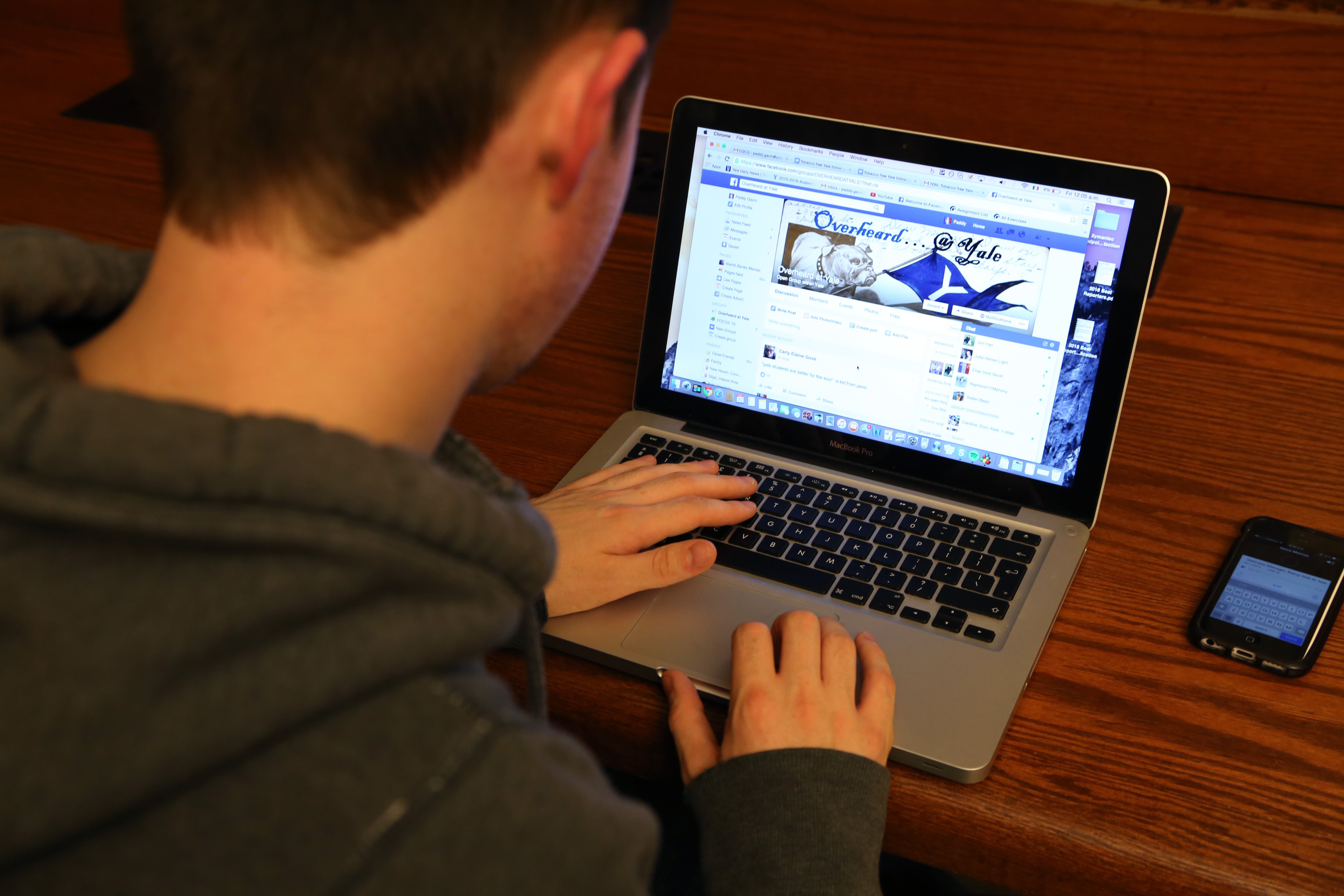
Over the past few weeks, the popular Facebook group “Overheard at Yale” has rapidly transformed from a source of comedic relief to a forum for impassioned discussion of controversial events on campus.
The group, which was founded in 2013 by a staff columnist for the News, Tyler Blackmon ’16, invites Yale community members to share the “crazy, random and downright strange things [overheard] on a daily basis at Yale,” according to its official Facebook description. Photos of campus dogs and quotations overheard on Cross Campus are frequent posts. But following allegations of racial discrimination on campus over Halloween weekend, the group exploded with discussion of these events, with students frequently posting updates on new developments, such as administrators’ emails, and heatedly debating issues of race, free speech and the relation of the two.
The change did not go unnoticed among students, some of whom were thrilled by what they perceived to be a newly productive, informative use of the group, while others grew frustrated that the posts did not conform to the established humorous nature of the page. Others complained that the posts were not strictly related to things “overheard” or “overseen” on campus.
“[The group’s role] has changed over the three years that I’ve run Overheard. It has constantly been evolving,” said Blackmon, who remains its sole administrator. This evolution has clearly manifested itself in the past few weeks, he added. “There were lots of events happening on campus that brought up a lot of feelings for people and they needed a space to let out a lot of those feelings, and Overheard became that space.”
In light of recent campus events, emotional and ideological expression proliferated on the page, including students’ personal experiences with racism and personal beliefs. Students’ responses to these posts demonstrated that students disagree as to what sort of content belongs on Overheard and, more generally, what function the group should perform.
Elijah Gunther ’18 said that although highly personal posts may lie outside the group’s purview, they can be at least partially beneficial under certain circumstances.
“Overall I don’t think that’s the role [of the group], but I think it was good all the same,” he said. “It helped spread the message and awareness, but at the same time it often turned into heated arguments that really weren’t supposed to be there.”
Others, like Noah Silvestry ’19, reacted more positively to the discourse that occurred on Overheard.
“Whereas I think a lot of the time social media becomes a way for people to sculpt their image in a kind of contrived way, I think the way the discussions have unfolded on Overheard have allowed people to have a discussion in a more mature, less emotional way,” he said.
Responding to some students’ objections about the inclusion of serious material on Overheard, Austin Strayhorn ’19 said the group should not be limited to any specific subject matter. Content on Overheard should be representative of students’ daily experiences, be they serious, comedic, unflattering or even disheartening, he said.
He did, however, note that this freedom does not give members the right to “monopolize and abuse the space … as a platform for any agenda, political or otherwise.”
Blackmon said the merits or disadvantages of the group’s transformation are less important than recognizing the inevitability of that evolution. Already, in the nearly three years since its founding, it has changed significantly, he said: Originally the group included just a few hundred members, and it now boasts nearly 8,000. In its early stages, all posts were purely textual; now members supplement the written word with photographs and videos.
“I think it will continue to change even after I have turned over the reins to someone else,” Blackmon said. “It will continue to change.”







